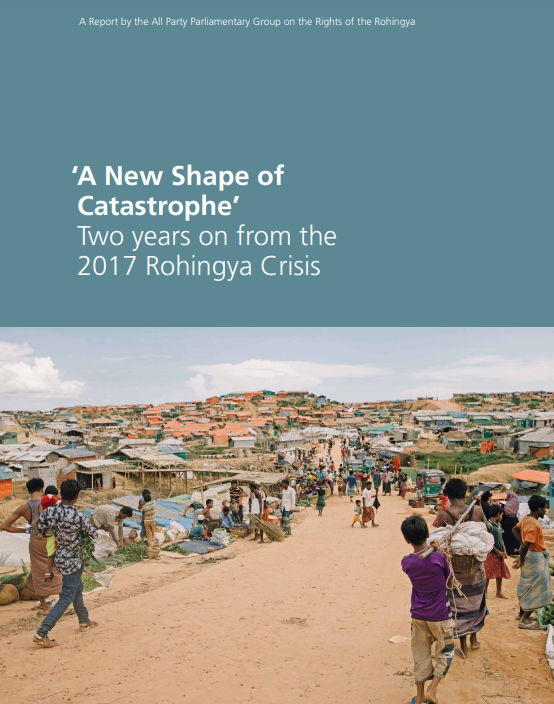Reforms must “not extinguish the light of the smaller pharmacy”, says Anne Main MP
Anne Main has warned that the government’s proposals to reallocate money towards NHS front-line services must not ‘extinguish the light of the smaller pharmacy’.
Speaking in the debate on pharmacies, the St Albans MP said that she wanted the ‘biggest bang for the taxpayer’s buck’ and that she wanted ‘the very best pharmacy service, with facilities that help to keep patients out of A&E and doctors’ surgeries’ whilst promoting ‘good health within communities.’ Mrs Main agreed that it was ‘important to integrate community pharmacies into the NHS urgent care system and GP services.’
I agree with the Minister’s thrust of ensuring that we get the greatest efficiency for the taxpayer and the best possible health service for our constituents. We cannot afford to waste money in any way, shape or form, but if we can find ways to redirect money into NHS front-line services, I agree that we should do so. As the Minister said, the NHS chief pharmacist has been very clear throughout the consultation that the current way in which community pharmacy is paid and organised needs to be reformed, so it is right that we should look at it.
The NHS is labouring under huge financial pressures, so we should look at any areas in which inefficiencies or duplications lead to precious resources being distributed inefficiently. The public want the money that could be saved through this measure to be reinvested in front-line NHS services. I am glad that the Minister has taken the opportunity to reassure us about that.
My own West Hertfordshire Hospitals NHS Trust struggles under a massive deficit that has been growing year on year. Its latest financial report revealed that it had a revenue deficit of £41.2 million by 2015-16. We cannot fail to tackle the huge financial pressures on the NHS, but just throwing money at the problem will never be enough if we do not seek to tackle the system at the same time. Surely the Opposition cannot be asserting that these matters should never be looked into. Their manifesto pledged £6 billion less than this Government have committed, so I am really intrigued to know how on earth they would keep this system in its entirety and, at the same time, put more money into NHS services, which is what I would like to happen.
I, like many, want the biggest bang for the taxpayer’s buck. I want the Health Minister to succeed in his aim of delivering the very best pharmacy service, with facilities that help to keep patients out of A&E and doctors’ surgeries and, at the same time, promote good health within communities. I agree that it is important to integrate community pharmacies into the NHS urgent care system and GP services.
I welcomed the Government’s announcement in October that the pharmacy integration fund will provide up to £42 million
“to improve on how pharmacists, their teams and community pharmacy operates within the NHS as a whole.”
If we are looking at an establishment payment of £25,000 to pharmacies, we must ensure that we get the right result. When it comes to the closure of small pharmacies, we must protect residents who live in more rural or sparsely populated areas, as well as those who do not have access to cars. The Minister has said that the existing funding system does not do enough to promote efficiency and quality, or to promote integration with the rest of the NHS. He has also said that in most cases the NHS is giving each of these pharmacies a guaranteed fixed payment of £25,000 per year regardless of their size, quality or local demand, and that in total the average pharmacy receives nearly £1 million for the NHS goods and services that it provides, of which around £220,000 is direct income.
Our pharmacy provision varies greatly across the country. The Quadrant pharmacy in St Albans, which I am due to visit on Friday, is situated in a small parade of shops and provides a valued local service. Other pharmacies are located as concessions in huge supermarkets such as Sainsbury’s in London Colney, which have the added attraction of longer opening hours, a large car park, being surrounded by other out-of-town superstores, and a huge footfall of shoppers who can get their prescriptions along with the dog food and Sunday roast. As many concessions are operated by the bigger chains, such as LloydsPharmacy, we must ensure that they do not extinguish the light of the smaller pharmacy that also operates in London Colney, just around the corner from the doctor’s surgery. It is important that we get this right.
I accept that there is an inefficient allocation of NHS funds when Government figures show that 40% of pharmacies are now in clusters of three or more. That means that two fifths are within 10 minutes’ walk of two or more other pharmacies, and I know that that is the case in certain areas of my own constituency. In the St Albans high street shopping area, there are five dispensing pharmacies within a half-mile area. Some are just over the road from each other, some have only yards between them, and some are also operating fairly near to that tightly packed city zone. That cannot be a good idea. St Albans is certainly very well served by pharmacies—not surprisingly St Albans is also the home of the National Pharmacy Association.
It is important that we look at the proposal on offer, but we must get this right. I hope that quality can be provided, that nobody is left behind when pharmacy services are streamlined, and that everyone has access to good services.
DISSOLUTION OF PARLIAMENT
Watch: Anne Main, chair of the All Party Parliamentary Group on Bangladesh, talks about the Rohingya crisis and urges support for @DECappeal pic.twitter.com/FFL0lq8O0A
— DFID (@DFID_UK) October 12, 2017

